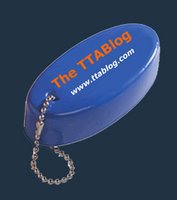CAFC Deems Section 2(c) Unconstitutional As-Applied in "TRUMP TOO SMALL" Refusal to Register
The Lanham Act took another hit in an appeal to the CAFC from a Section 2(c) refusal of the mark TRUMP TOO SMALL for shirts. The Board found that the mark "comprises the name of [former] president Donald Trump without his written consent" and it rejected Applicant Steve Elster's First Amendment challenge to the constitutionality of Section 2(c). [TTABlogged here]. The appellate court reversed, concluding that as applied here, Section 2(c) is unconstitutional because the Government has no substantial interest in "granting all public figures the power to restrict trademarks constituting First Amendment expressions before they occur." In re Steve Elster, 2022 USPQ2d 195 (Fed. Cir. 2022) [precedential].
Section 2(c), in pertinent part, bars registration of a mark that "[c]onsists of or comprises a name, portrait, or signature identifying a particular living individual except by his [sic] written consent . . . ." The CAFC noted that the Supreme Court has, in the past five years, held unconstitutional two portions of Section 2(a) of the Lanham Act: In Matal v. Tam, the Court struck down the "disparagement" provision and in Iancu v. Brunetti it axed the "immoral or scandalous" provision.
The two opinions in Tam and the majority opinion in Brunetti each relied on a “core postulate of free speech law”—that “[t]he government may not discriminate against speech based on the ideas or opinions it conveys”—and concluded that “[v]iewpoint discrimination doomed” the two provisions. Brunetti, 139 S. Ct. at 2299.
However, neither of those cases resolves the constitutionality issue presented here because both holdings were "carefully cabined to the narrow, 'presumptive[] unconstitutional[ity] of section 2(a)'s viewpoint-based restrictions." The Section 2(c) restriction involves content-based discrimination.
The Supreme Court in Tam and Brunetti established that a trademark "represents 'private, not government, speech' entitled to some form of First Amendment protection." Trademarks frequently "have an expressive content" and can convey "powerful messages . . . in just a few words." Brunetti further established that denying to a term the benefits of registration "disfavors" the speech being regulated.
We recognize, as the government contends, that section 2(c) does not prevent Elster from communicating his message outright. But whether Elster is free to communicate his message without the benefit of trademark registration is not the relevant inquiry—it is whether section 2(c) can legally disadvantage the speech at issue here.
Elster asserted that he sought to invoke "a memorable exchange between President Trump and Senator Marco Rubio from a 2016 presidential primary debate, and aim[ed] to 'convey[] that some features of President Trump and his policies are diminutive.'" The CAFC observed that Elster's mark is speech by a private party "in a context in which controversial speech is part-and-parcel of the traditional trademark function, as the Supreme Court decisions in Tam and Brunetti attest."
Speech does not lose its First Amendment protection because it is sold rather than given away, nor is speech entitled to lesser protection because it is printed on a T-shirt. Putting aside whether strict scrutiny or intermediate scrutiny applies to trademarks, the CAFC observed that "there must be at least a substantial government interest in the restriction." The court proceeded to weigh the competing interests.
The First Amendment interests are "undoubtedly substantial," since a major purpose of the First Amendment was and is "to protect the free discussion of governmental affairs." The "fullest and most urgent application" of the First Amendment is to speech concerning public officials. The USPTO, however, asserted that those interests are outweighed by the government's substantial interest in protecting state-law privacy and publicity rights.
The CAFC saw no plausible claim that former president Trump enjoys a right of privacy protecting him from criticism, absent actual malice: the government has "no legitimate interest in protecting the privacy of President Trump, 'the least private name in American life,'" from injury to his "personal feelings" caused by Elster's political criticism.
As to the right of publicity, there was no claim that former president Trump's name is being misappropriated in a manner that exploits his commercial interests or dilutes the commercial value of his name or of any form of intellectual property. Nor could a plausible claim be made that the mark suggests endorsement by Trump (a claim that would fall within the Section 2(a) bar anyway). Moreover, the Restatement of Unfair Competition states that right of publicity claims are "fundamentally constrained by the public and constitutional interest in freedom of expression" such that "use of a person’s identity primarily for the purpose of communicating information or expressing ideas is not generally actionable as a violation of the person’s right of publicity." The CAFC concluded that:
The government has no valid publicity interest that could overcome the First Amendment protections afforded to the political criticism embodied in Elster’s mark. As a result of the President’s status as a public official, and because Elster’s mark communicates his disagreement with and criticism of the then-President’s approach to governance, the government has no interest in disadvantaging Elster’s speech. *** The PTO’s refusal to register Elster’s mark cannot be sustained because the government does not have a privacy or publicity interest in restricting speech critical of government officials or public figures in the trademark context—at least absent actual malice, which is not alleged here.
Although the CAFC's decision involved only an as-applied argument to the constitutionality of Section 2(c), the CAFC observed that there are concerns with the "overbreadth" of that provision.
It may be that a substantial number of section 2(c)’s applications would be unconstitutional. The statute leaves the PTO no discretion to exempt trademarks that advance parody, criticism, commentary on matters of public importance, artistic transformation, or any other First Amendment interests. It effectively grants all public figures the power to restrict trademarks constituting First Amendment expression before they occur."
And so, the CAFC reversed the Board's decision, "reserv[ing] the overbreadth issue "for another day."
Read comments and post your comment here.
TTABlogger comment: Section 2(c) cases are rare at the TTAB. In a May 2019 TTABlog post [here], I listed the seven such decisions since 2014. Add to that the 2020 TRUMP-IT case here.
Elster filed his application on a Section 1(b) intent-to-use basis. As others have pointed out, when he files his specimen of use, the USPTO will have the opportunity to refuse registration based on a failure-to-function ground if, for example, it deems the mark a commonplace meme or if the mark is used merely ornamentally.
Text Copyright John L. Welch 2022.









































